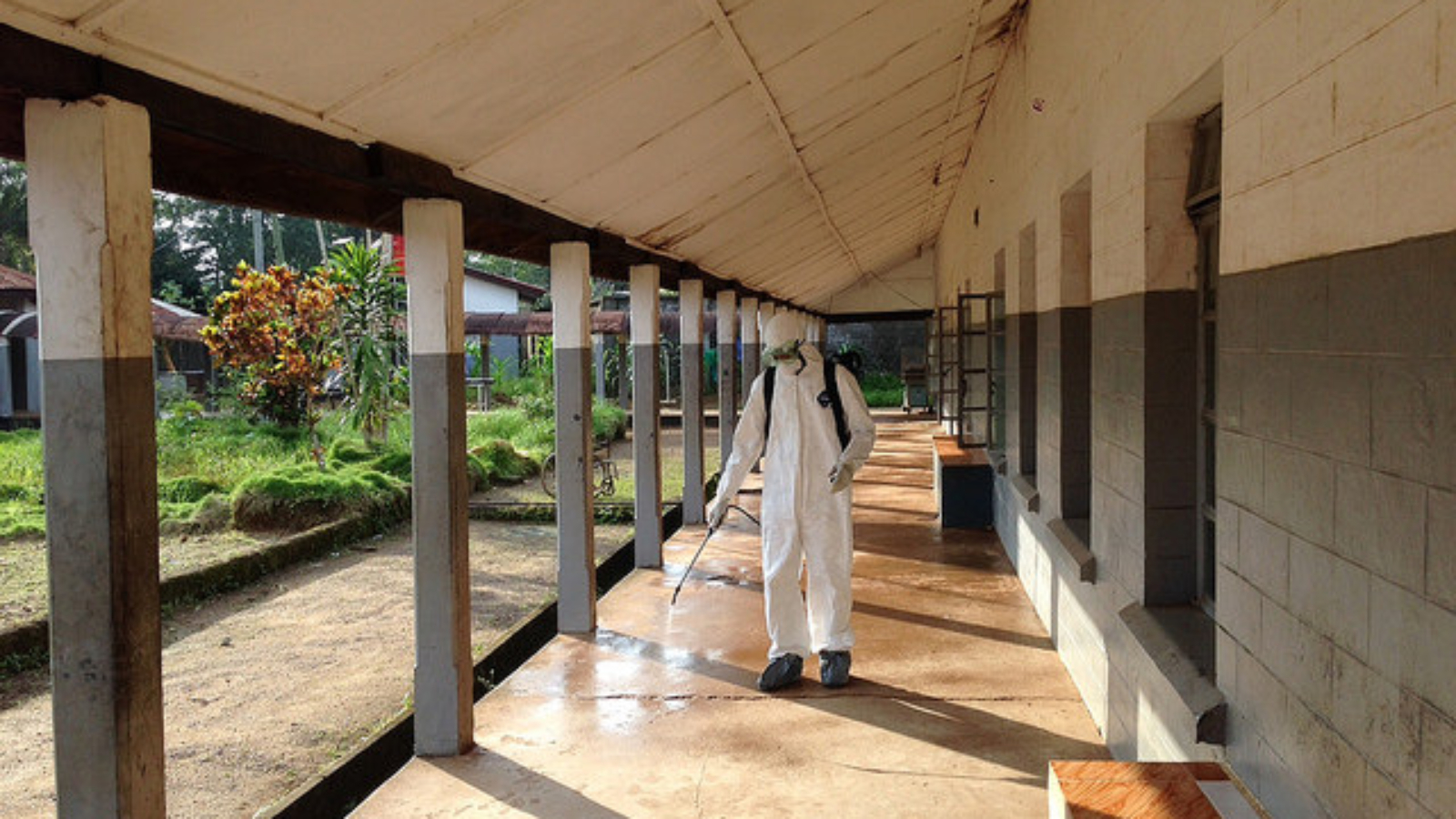This article was previously published on Ebola Deeply.
By Aruna Turay
Sierra Leone’s National Ebola Response Center (NERC) has launched phase two of an operation designed to curb the spread of Ebola in the western part of the country. Ebola Deeply’s Aruna Turay met with retired Major Palo Conteh, who heads the NERC, to find out more.
Ebola Deeply: Retired Major Palo Conteh, thank you for talking to Ebola Deeply. Can you tell us about Operation Western Area Surge?
Conteh: Operation Western Area Surge, which runs until January 25, is the brainchild of my boss, President Ernest Bai Koroma. Following the rapid rise of new infected cases in the western area in December 2014, he thought it fit to institute an operation aiming to conduct a mass house-to-house search for all sick people, in order to bring them out and get them tested for Ebola, malaria, and other ailments. Those who test positive for Ebola are referred to treatment centers, and those suffering from malaria and other ailments are referred to government hospitals.
Ebola Deeply: You’re calling this coming period "phase two." What does that mean?
Conteh: Phase two will concentrate on the intensification of social mobilization, contact tracing, and surveillance. If these are effective, I’m sure there will be no need for quarantining people. The president is serving as chief social mobilization officer in the new social mobilization committee that has been put in place for this phase. We are aiming to ensure that people stop the secret burials that are currently hindering the war against Ebola and contributing to the transmission of the virus.
Ebola Deeply: What have been the challenges and successes of the operation so far?
Conteh: Until now, the western area had only 16 ambulances to fight Ebola, but we now have 30 ambulances in operation. We also succeeded in increasing the number of hospital beds fourfold, and several other essential strategies are now also in place to ensure that Ebola becomes a thing of the past in Sierra Leone. Most importantly, phase one of the surge brought out 944 sick people in various communities; 263 of them tested positive for Ebola.
Social mobilization is one major challenge we still face in the fight against Ebola. Now that we have succeeded in having sufficient hospital beds, holding and treatment centers – our previous big challenge – we’re focusing on the issue of social mobilization. We still have people holding illegal public gatherings, holding secret burials, hiding sick people in their homes and communities, attending burials, and visiting sick people in their homes among other possible factors that are known for transmitting the virus.

Ebola Deeply: What have you learned so far in the fight against Ebola?
Conteh: We have seen a strong need for the total inclusion of religious leaders and local authorities such as chiefs, councillors, and traditional leaders in the fight against the disease, if Sierra Leone is to win the war anytime soon. These categories of people were brought in late by the government, but they did tremendously well in handling the chain of transmission in their respective communities, especially in the area of sensitization, contact tracing, surveillance and raising awareness.
Ebola Deeply: There has been this issue of health workers going on strike over the late or nonpayment of risk pay. The most recent incident is at the Hastings Treatment Center in Freetown. What is going on?
Conteh: The issue of health incentive payment to health workers has been one difficult thing for us to handle at NERC. When we first decided to start paying risk pay on a weekly basis to health workers, our initial target was 5,000 health workers, but now we have 20,000 health workers on our list. That’s because the number of treatment centers has increased, and also because we have discovered that some people are fiddling with the staff lists, thereby inflating the number of workers they have in their centers.
Ebola Deeply: How are you addressing this issue of the nonpayment of incentives?
Conteh: A team from the World Bank is currently reviewing the entire process of risk pay, and we are hoping that they will clean up the list, pay backlogs to deserving workers, and address this problem once and for all. The risk pay system might also be changed from weekly to twice monthly, and perhaps eventually to monthly.
Ebola Deeply: On a separate issue, lots of people are wondering when it might be a good time to reopen schools in Sierra Leone. This is not an NERC issue, but as someone aware of the intricacies of the situation, what is your personal opinion?
Conteh: This is my personal opinion and not that of the government nor the NERC, but I think as a country we should start considering the reopening of schools now. We need to put a lot of things in place prior to actually reopening them, and I have already asked my team to call a meeting with education and health ministry authorities so that we can come together and map out strategies for the reopening of schools immediately. It is bad if our children were to lose a whole academic year. We should ensure that all health protocols are observed and followed by the pupils and teachers, and reopen schools when it is safe to do so.
*****
*****
Aruna Turay is a contributor at Ebola Deeply
[Photo courtesy of Medici and European Commission ]